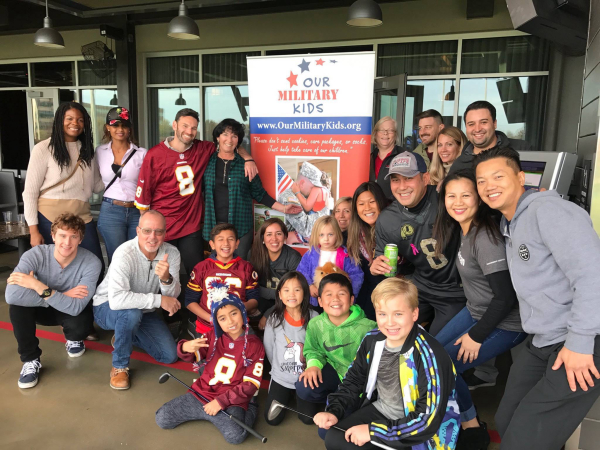Today we visit the nonprofit Sit Stay Read in Chicago and talk with Victoria Luisi, the Communications Manager, about this unique program. Later in the show Kimberly brings us a interview with the charity Our Military Kids.
On last week’s show we talked about the illiteracy and how reading empowers youth in later life. The lack of literacy skills during a child's early life translate to illiteracy rates later on.
According to the National Adult Literacy Survey. as many as 44 million (23%) adults in the United States are functionally illiterate, lacking basic skills beyond a fourth-grade level. Low literacy individuals struggle to find employment and often settle for low-paying jobs, as they fight to increase their earning power and to support their families. They under-utilize the healthcare system out of fear, or over-utilize it because they are unable to follow written instructions on prescriptions or discharge papers.
Perhaps most heartbreaking is the long term effect their low-literacy has on their children – children who never hear a bedtime story or receive help with homework because their parent can’t read. Low literacy becomes intergenerational: the strongest indicator of a child’s success in school is his mother’s level of education.
Just consider these facts:
- One child in four grows up not knowing how to read.
- 85 percent of all juveniles who interface with the juvenile court system are functionally illiterate.
- By 2020, 65% of all U.S. jobs will require postsecondary education and training beyond high school.
U.S. companies are experiencing a very real “skills gap”—one that will become even more acute over the next 15 years.
A focus on improving third grade reading proficiency is a powerful tool to address many aspects of the skills gap over the long term. Research shows that reading itself is one of the most commonly and intensively used skills among all types of jobs across the entire U.S. economy, including jobs that require no education or training beyond high school
“I hate reading.” Have you heard that phrase before from a struggling reader? Many parents and teachers have. Motivating struggling readers can sometimes feel defeating. Struggling readers, especially those in the upper grades, tend to carry with them a low reading esteem. They are aware that they just can’t do it and many times, they lack the motivation to read altogether.
Did you know that learning to read is a challenge for almost 40 percent of kids? The good news is that with early help, most reading problems can be prevented. Unfortunately, the older a child is, the more difficult it is to teach him or her to read. If a child can't read well by the end of third grade, odds are that he or she will never catch up. And the effects of falling behind and feeling like a failure can be devastating.
One charity with a unique approach to motivating children to read is Sit Stay Read, a nonprofit in Chicago. 54% of Chicago’s public school students do not meet or exceed reading standards and only 3 in 10 students entering 4th grade are proficient readers.
Their mission is to advance children’s literacy skills using an engaging curriculum, certified dogs, and dedicated volunteers. Sit Stay Read provides year-round programming for low-income students in first through third grades in Chicago Public Schools. They work closely with the faculty from the University of Illinois at Chicago Center for Literacy, University of Chicago, DePaul University, and Northeastern Illinois University to develop the curriculum. Why dogs in the classroom?
Sit Stay Read dogs provide a non-judgmental sounding board for out-loud reading. Students who get the chance to read out loud to one of the Certified Reading Assistance Dogs in their classroom are less likely to feel worried about making mistakes, which helps them to become more confident readers.
While in Chicago, we had a chance to sit down with Victoria Luisi, the Communications Manager at Sit Stay Read, to talk about this unique program and the impact it has on the children served.-

Story Time
-

Too adorable...
-

Little Buddies Program
-

And this is Koda...one of the Certified Reading Assistance Dogs
In this week's Peace Fund Hero of the Week segment, Kimberly talks with Our Military Kids, a 501(c)(3) nonprofit organization that supports children, ages 5-12th grade, of deployed National Guard and Reserve service members and children of wounded warriors from all service branches. Grants pay for participation in activities that help children cope with stress and anxiety while their parents are recovering or absent.
In early 2005, they started small, with a pilot program focused on a National Guard unit from Winchester, Va. The pilot program was extremely successful, and they expanded to help all deployed Reserve and National Guard families living throughout Virginia.
Calls from deploying citizen soldiers were sometimes heart-breaking. Feeling the need to help more children cope with the challenges brought on by lengthy separations, they began covering families living in Maryland and the District of Columbia.
In 2006, Our Military Kids expanded its program once again, this time to include children of both active and reserve/guard wounded and fallen warriors, whose families were struggling to deal with financial and emotional hardships.
Today, Our Military Kids, is a national organization. With the help of generous donors and volunteers, we have empowered more than 44,000 children.

